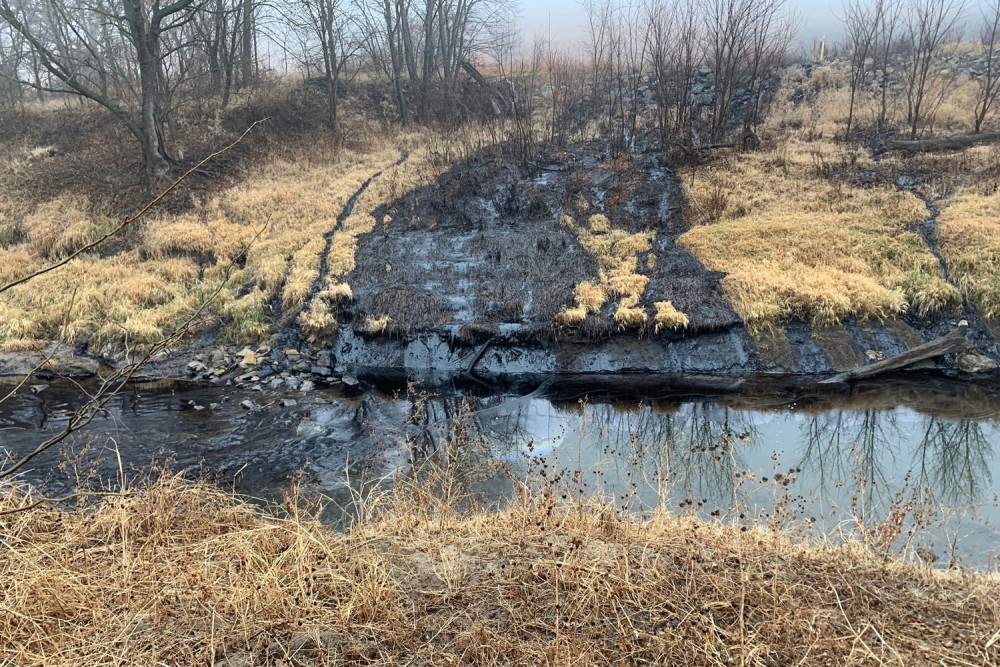A preventable oil spill in Kansas
Fossil fuel companies aren’t promoting sustainability. They
can’t even be trusted to take baseline safety measures.

The area impacted by the pipeline rupture and subsequent oil discharge into Mill Creek near Washington, Kansas. (US Environmental Protection Agency)
In December, a leak was detected in a section of the Keystone Pipeline located near the Kansas-Nebraska border. Eventually, 588,000 gallons of toxic tar sands oil—almost an Olympic swimming pool’s worth—spilled into Kansas’s Mill Creek and onto surrounding farmland.
It was the largest oil spill in the pipeline’s 13-year history—larger than the previous 22 spills combined. And it could have been prevented.
According to a government-mandated investigation into the cause of the spill, TC Energy, the Canadian company that owns the Keystone Pipeline, knew this section of the pipeline was defective. In fact, in 2013 TC Energy dug it up because it was warped. Yet instead of making any repairs, the company reburied the pipeline and had inspectors retrofit their tools to work around the warping.





